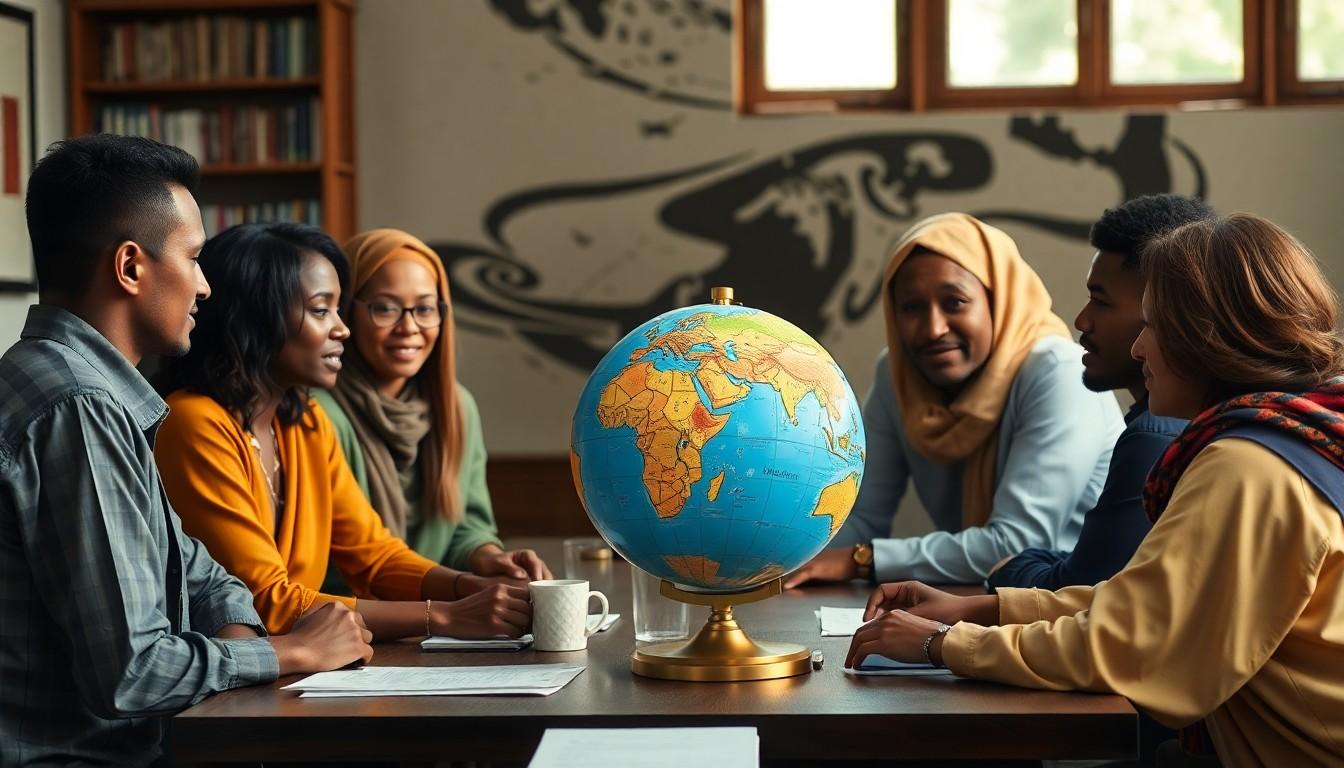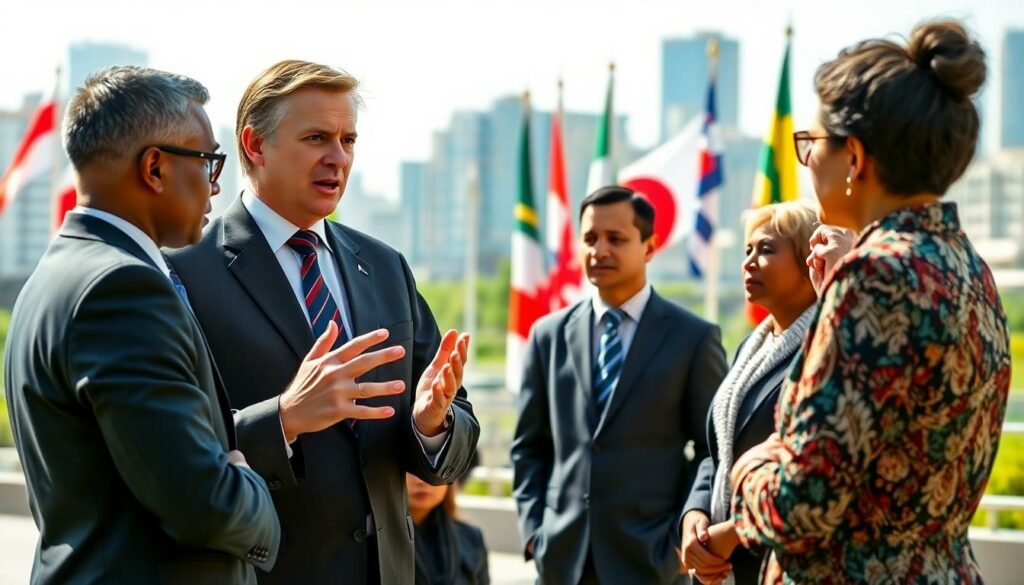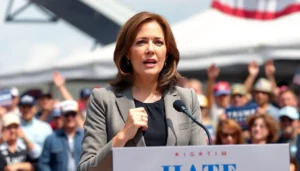In a world where diplomacy often feels like a game of chess played by people who forgot the rules, missionary diplomacy steps onto the scene like a charismatic diplomat with a megaphone. This unique approach blends the art of persuasion with the zeal of a street preacher, aiming not just to negotiate but to inspire and convert. Imagine a diplomat who believes that every conversation is an opportunity for a little enlightenment—it’s both amusing and effective.
Missionary diplomacy isn’t just about striking deals; it’s about spreading ideas like confetti at a parade. Whether it’s promoting human rights or environmental sustainability, this method seeks to win hearts and minds while building bridges. So, buckle up as we explore how this fascinating blend of diplomacy and evangelism is reshaping international relations, one persuasive pitch at a time.
Table of Contents
ToggleOverview of Missionary Diplomacy
Missionary diplomacy merges persuasive negotiation with passionate advocacy. This approach not only seeks agreements but also aims to inspire change through the promotion of fundamental values.
Definition and Key Concepts
Missionary diplomacy exemplifies a strategic fusion of kindness and policy. Advocates of this diplomacy prioritize concepts like human rights, democracy, and environmental stewardship. The method relies on engaging with diverse audiences, employing rhetoric that resonates emotionally. This form of diplomacy transcends mere transactional interactions, creating meaningful relationships based on shared values. Through narratives, cultural exchange, and grassroots mobilization, it fosters dialogue and collaboration.
Historical Context
The roots of missionary diplomacy trace back to interactions during colonial expansion. Many missionaries acted as early diplomats, establishing ties while promoting their beliefs. Prior to the 20th century, this blend of spirituality and politics laid groundwork for contemporary diplomatic practices. Post-World War II, humanitarian agendas became more pronounced, reflecting global shifts toward human rights. Institutions like the United Nations emphasized the interconnectedness of diplomatic objectives and moral imperatives, paving the way for modern applications of missionary diplomacy.
Case Studies in Missionary Diplomacy

Missionary diplomacy plays a significant role in shaping international relations today.
The Role of Religion in U.S. Foreign Policy
Religion significantly influences U.S. foreign policy decisions. Various administrations have prioritized religious freedom, integrating it into diplomatic efforts. The State Department actively promotes human rights, viewing them as essential for peace and stability. Engagement with religious leaders offers pathways to reach communities where traditional diplomacy falters. Many policies link strategic interests to the promotion of democracy while emphasizing moral imperatives. This integration of faith into foreign policy demonstrates a commitment to values beyond typical political agendas.
Impact on Colonial and Post-Colonial Nations
Colonial nations experienced profound shifts due to missionary diplomacy. Early missionaries not only spread faith but also acted as intermediaries in negotiation. Their influence affected governance and social structures, often prioritizing humanitarian efforts. They contributed to education and health, reshaping communities in significant ways. Post-colonial nations grapple with legacies of these interactions, as faith-based organizations continue to engage in development work. The impact resonates today, often blending economic aid with advocacy for human rights and social justice.
Ethical Considerations
Missionary diplomacy raises important ethical questions regarding its influence on international relations.
Moral Implications of Missionary Diplomacy
Moral implications involve the responsibility to promote universal values without imposing cultural beliefs. Engaging with communities often requires sensitivity to local customs and traditions. Positive motives drive missionary diplomacy, aiming for social justice and human rights advancements. Some argue that blending diplomacy with religious advocacy risks overshadowing secular objectives. Ethical engagement should prioritize genuine dialogue over conversion tactics, ensuring respect for the diversity of beliefs. Such considerations further complicate the dynamics of international relations, demanding a careful balance between advocacy and respect.
Criticisms and Controversies
Critics highlight potential conflicts arising from missionary diplomacy practices. They argue that infusing foreign policy with religious ideals can lead to accusations of imperialism. Controversies also stem from the perception that this approach might prioritize specific religious perspectives over secular interests. Critics point out instances where missionary diplomacy has resulted in distrust among communities, undermining its goals. Public opinion often reflects concerns about manipulation under the guise of moral authority. Transparency in intent and method remains crucial to addressing these criticisms, ensuring diplomatic efforts align with ethical standards.
The Future of Missionary Diplomacy
Missionary diplomacy continues to evolve as global challenges grow. Innovative approaches emerge, emphasizing advocacy beyond mere negotiations.
Trends and Emerging Practices
Diverse movements shape missionary diplomacy today. Increasingly, organizations focus on climate justice, gender equality, and indigenous rights. They prioritize aligning traditional diplomatic efforts with grassroots initiatives. Collaborative frameworks between governments and non-profits gain traction. Shared values elevate discussions to ensure inclusivity. The integration of humanitarian responses into diplomatic agendas demonstrates this trend’s impact.
Role of Technology and Globalization
Technology transforms missionary diplomacy by enhancing outreach. Digital platforms enable voices from different cultures to connect globally. Organizations harness social media for advocacy campaigns, amplifying their messages. Furthermore, virtual reality experiences immerse audiences in community challenges, fostering empathy. Globalization also breaks down geographical barriers, facilitating broad alliances. As cultural exchanges become easier, the importance of local context remains critical in shaping solutions.
Missionary diplomacy represents a significant shift in how nations engage with one another. By intertwining advocacy with negotiation it fosters deeper connections rooted in shared values. This approach not only addresses pressing global issues but also encourages a more inclusive dialogue among diverse audiences.
As the world faces complex challenges like climate change and social justice the relevance of missionary diplomacy will likely grow. Its ability to inspire change through compelling narratives and grassroots mobilization positions it as a vital tool in contemporary international relations. Embracing this dynamic method can lead to more meaningful partnerships and a more just world.





